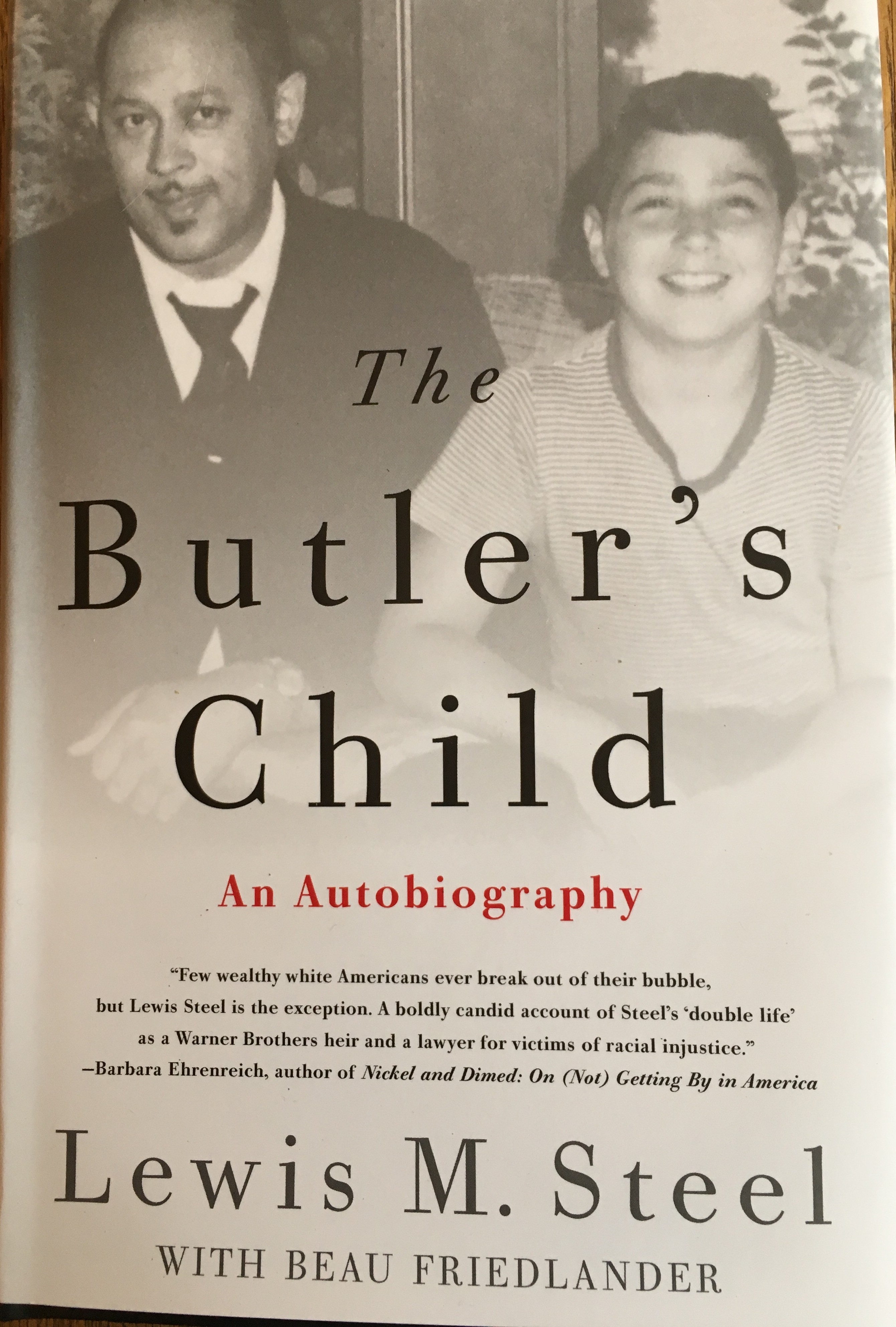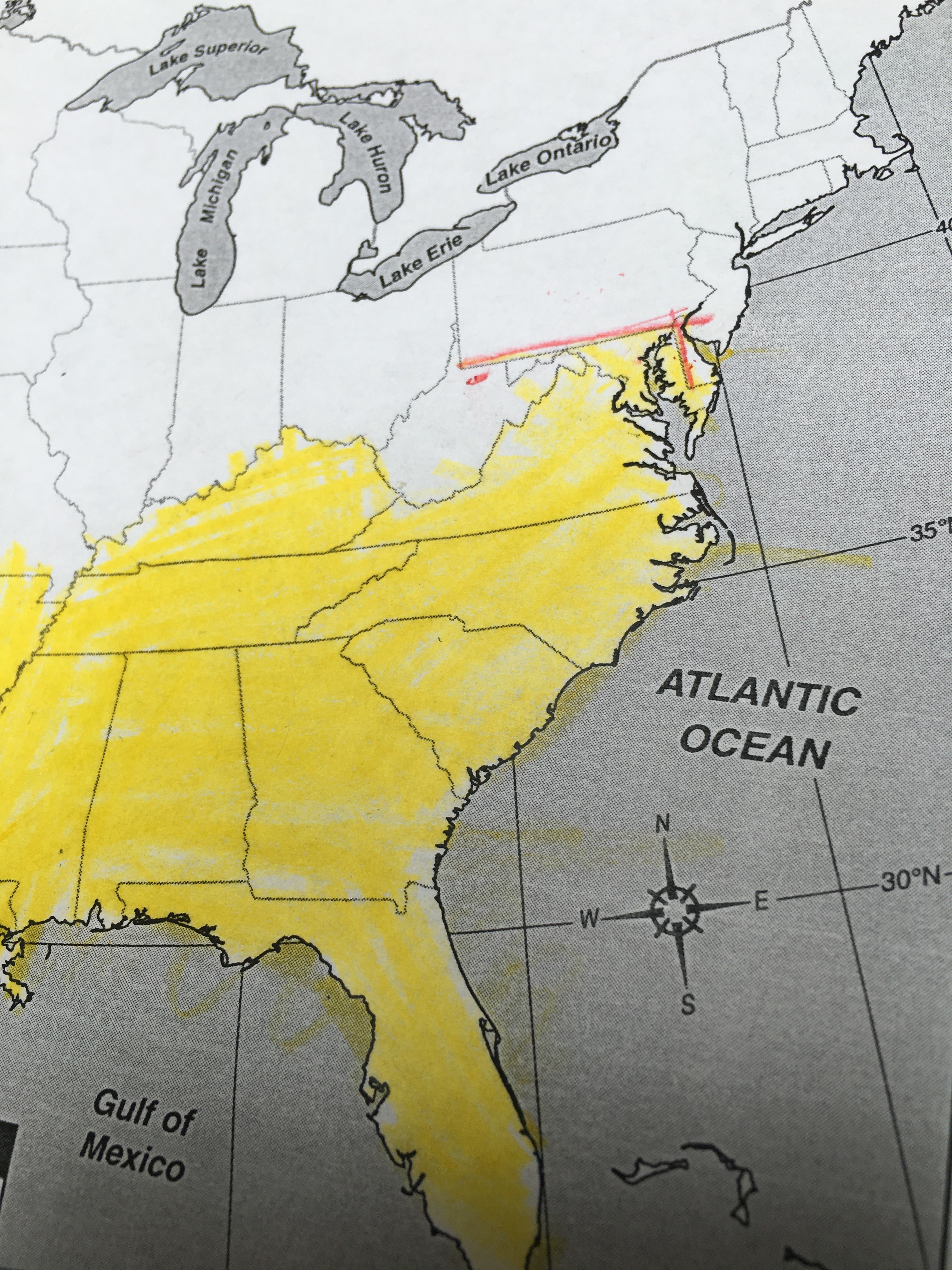 Turning Around
Turning Around
By Rubie Goldner
As you get older, at a certain age, you stop always thinking about yourself. You start thinking about people outside your immediate family. As I grew older I started thinking about Bill and what his life was like. (Lewis Steel)
Today May 16th Dennis’ Grandparents came in. Kitty is his grandmother and Louis is his grandfather. Louis wrote a book called The Butler’s Child. Louis was “The Child” part of the book.
He grew up in a wealthy family and was very close to their butler. The butler’s name was Bill and Bill had a nickname for Louis, Skippy. Louis is a civil rights lawyer – he has been a civil rights Lawyer all his life and is still one today. Louis talks about thinking about yourself and thinking about other people. He said, “As you get older you will stop thinking a lot about yourself.” As he got older Louis thought a lot about Bill and not himself as much. When he was ten taking a bus was no problem but African Americans had to sit in the very last rows on the bus all crowded together.
When Louis was little when it got dark in Miami and if you were African American and you were outside you would be arrested. So because Bill was African American, if he was outside at night he would be arrested. There weren’t any African American cops, there were only white cops. As Louis got older he started feeling bad for African American people. The white people and the police force was so strong you couldn’t do much about it. African Americans went to Florida to be servants, not for fun. “It was an all white world, two separate worlds one for white people and one for colored,” said Louis. There wasn’t slavery but it was just as bad. If you were an African American man and you looked at white women you could get killed for that. If you were colored and walking on the sidewalk and a white person was coming down the sidewalk you had to get off the sidewalk. If an colored person and a white person got married you would be thrown in jail. Missouri was cut in half, there was a slave side and a white side. Louis fought for civil rights in the South. Colored people are accused of killing white people. If a white person kills an African American no big deal, but if an African American kills a white person, huge deal.
Louis fought for a case of a ceiling falling down in a colored school that wasn’t a good school. He tried to get the school closed down but he lost the case. “Losing is part of life, growing up, and getting old.” Louise’s book The Butler’s Child will be published June 14th.
“Some African American kids were born really smart but they couldn’t learn to read and write because they couldn’t go to school or the schools they went to were terrible.” This quote reminds me how lucky I am to be able to live in a nice cozy house and to go to a good school and have a good education!! Sometimes people do bad things for no really good reason and they think “Isn’t this a great thing I’m doing.” But what they don’t know is that what they are doing is wrong. The civil rights movement is an example of noticing that kind of behavior. But some people with a fair mind find it in their hearts to stand up for what is right no matter the punishment, no matter how big the army of the other side is.
Fight for What’s Right
By Tess Taetle
What did Papa Lewis do? Papa Lewis on May 16, 2016 came to a 4th grade classroom. Papa Lewis talked about everyone having rights and how he was a civil rights Lawyer. Papa Lewis wrote a book called The Butler’s Child about him and his friend who was African American. He came to the classroom with his wife Kitty. Papa Lewis is not an African American.
One reason people were not giving rights to the African Americans was because the whites thought they were better. Papa Lewis did not agree. He worked on many cases about rights for African Americans to help with the problem. One of the cases was that two black women wanted to rent an apartment and since they were black the landlord did not let them rent the apartment. Papa Lewis won the argument about that case.
Some quotes Papa Lewis said were, “If you were a black man and looked at a white women, you could be killed,” and “I grew up living with whites in charge of blacks and it felt wrong to me.” When Papa Lewis lost a case he would not be very happy. An example of a case Papa Lewis lost was when in an all black school where the conditions were really bad, the roof in one classroom broke and the kids still had to go back to school.
“I am so glad you kids don’t have to live without civil rights,” said Papa Lewis, “because it was awful what happened to the African Americans back then.” What would the world be like if segregation never stopped and civil rights never started?
Civil Rights Lawyer being Called a Communist?
By:Grace MacGillivray
I grew up in a time when being white was considered to be better than being black. When I went to work for the NAACP, which had lawyers who fought civil rights cases all over the country. I went there in 1963. I worked for Robert Carter, who was African American, who had won most of his cases. He was brilliant. He became my teacher and mentor. He was my boss. I was used to whites being the boss of blacks, so I had to change my thinking. (Lewis Steel)
On May 16, 2016, Lewis Steel (Papa Lewis) came in to talk to the Fourth Graders at LREI about Civil Rights. Some people called him a Communist when he fought for Civil Rights.
Lewis was born in New York City, 1937. He went vacationing in Florida a lot when he was growing up. There were a lot of people being treated unfairly at that time, the people of color had to sit at the back of the bus and if they were out after dark they would be arrested.
Lewis also talked to the Fourth Graders about Jim Crow laws. If you were an African American and you were walking on the sidewalk and a white person walked past you you would have to get off the sidewalk for them, and African Americans and Whites could not get married.
Lewis had a few kids and one of them happens to be a parent at LREI and that is why he is talking to the Fourth Graders about something that is still going on in some places around the world.
A Civil Story
By: Violet Zimmerman Wexler
Ever wondered what it feels like to be a lawyer in the civil rights movement? Whose side would you be on? This is the story of Papa Lewis. He came into the Fourth Grade classroom on Monday, May 16th, 2016. He grew up in New York City and segregation was a problem.
Papa Lewis wrote his own book titled, The Butler’s Child, which will be published on June 14th, 2016. Papa Lewis has lived through so many unfair things you would not imagine. Papa Lewis had a very close relationship with his butler, William. “As I got older, I didn’t like seeing African American people have to sit in the back of the bus. And I didn’t like that Lorena and Bill couldn’t go outside after dark.” He explained to the fourth graders.
Papa Lewis worked on many cases. “I did a bunch of cases involving housing discrimination. The landlords would discriminate against African Americans.” Papa Lewis continues, “The Mason Dixon line, below that line was Jim Crow, Jim Crow wasn’t slavery, but it was almost as bad. If you were African American and you were walking on the street and a white person walked by you were supposed to get off the sidewalk.”
“William called me Skippy and I called him Bill. The more I thought about it, my sense was that he was not treated very well and his opportunities in life had been limited because of his race, so I became a civil rights lawyer,” Papa Lewis explained to the children. He graduated from law school in 1964. “There were a lot of people, mainly young people, who didn’t like what was happening.”
Before Papa Lewis left he gave some wisdom words to the kids,
When you get older, you might decide to find a job out to help out others. That’s what I did. I found a job that could help society to change so things could be better for everyone. (Lewis Steel)
All the kids were happy to hear about history from a real eyewitness.



Hi all, I am sharing an email from Lewis with his permission – something important for us to think more about. “Small point and probably my fault, although I mentioned it briefly but the kids did not pick up on it. I told them that right now, a short subway ride away they could go to areas of the city today where there were segregated schools and housing and conditions were really bad. I know the horrors of the South back then are so much more dramatic and they take over in a short discussion. ( Actually that ceiling collapse took place in South Bend Indiana, a northern city.). But the North needs the focus, especially of northern kids and their families.
–Actually not a small point. It is why I still do the work I do and I should have put more emphasis on it.”
Take care
Lewis
It was so interesting to listen to someone that actually experienced something so important in history and to hear about how bad it really was for people of color and someone that fought for what was right.
I loved Lewis’s story I was so happy that he told us about his book.
I thought that Lewis Steel was so interesting! I read some of his book and I thought it was very complex.
It was so cool to meet someone who actually helped in the civil rights movement. It was so amazing to here actual stories too.
This was the best visitor I think. I liked it so much I wanted to comment on it twice but I could not!
I think it’s awesome that we got to meet someone who experienced a lot about our history like racial issues and wanting to change that. It was very touching. Also good job reporters!
I am so happy he came in and showed us his book. I might read it since the articles brought the idea back to me.
Tess I really liked your news article and I liked how you put in one of the cases Luis lost, and one he won.